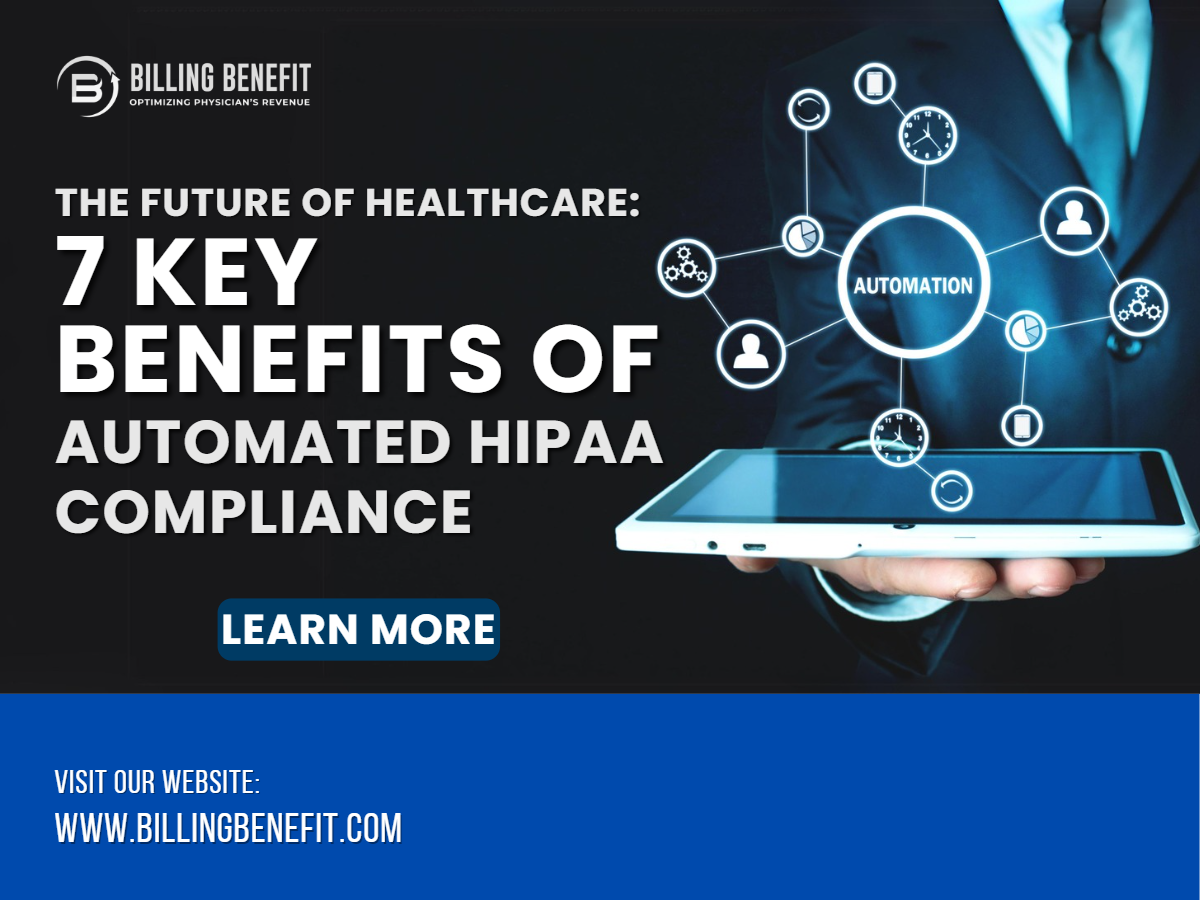In the rapidly evolving landscape of healthcare, HIPAA compliance has never been more critical. As technology advances, so do the methods for ensuring that sensitive patient information remains secure. Automated HIPAA compliance is becoming the preferred solution for many healthcare organizations, offering a streamlined, efficient way to maintain compliance with stringent regulations. But what exactly is automated HIPAA compliance, and why is it so essential in today’s healthcare environment?
Understanding HIPAA Compliance: A Primer
HIPAA compliance means adhering to the regulations set forth by the Health Insurance Portability and Accountability Act (HIPAA) of 1996. These regulations are designed to protect sensitive patient data and ensure its privacy and security. Compliance with HIPAA is mandatory for all healthcare providers, as well as any organization that handles patient data, including third-party service providers.
Failure to comply with HIPAA can result in severe penalties, including hefty fines and legal action. This makes HIPAA compliance a top priority for healthcare organizations, who must navigate the complex landscape of regulations to avoid breaches and protect their patients’ information.
The Rise of Automated HIPAA Compliance Solutions
As healthcare organizations grow and patient data increases, the need for more efficient compliance solutions has become apparent. Automated compliance leverages advanced technology to streamline the compliance process, reducing the risk of human error and ensuring that all regulatory requirements are consistently met.
These solutions are designed to monitor, assess, and manage compliance automatically, providing healthcare organizations with real-time insights and alerts. This not only simplifies the compliance process but also helps organizations stay ahead of potential breaches or violations.
Why Healthcare Needs Automated HIPAA Compliance
The healthcare industry is uniquely vulnerable to data breaches, with vast amounts of sensitive information being handled daily. Traditional methods of maintaining compliance are often time-consuming and prone to error, leaving organizations exposed to risks.
Automated HIPAA compliance addresses these challenges by providing a more reliable and efficient way to manage compliance. By automating tasks such as data monitoring, reporting, and risk assessments, healthcare organizations can focus on delivering quality care while ensuring that they remain compliant with HIPAA regulations.
Key Features of Automated HIPAA Compliance Systems
Automated HIPAA compliance systems come equipped with a variety of features designed to make compliance management easier and more effective. Some of the key features include:
- Real-Time Monitoring: Continuously monitors data and systems for any signs of non-compliance or potential breaches.
- Automated Reporting: Generates compliance reports automatically, saving time and reducing the risk of errors.
- Risk Management: Identifies and mitigates potential risks before they become a problem, ensuring that organizations remain compliant.
- User-Friendly Interface: Easy-to-use platforms that allow healthcare professionals to manage compliance without extensive technical knowledge.
Reducing HIPAA Compliance Liability with Automation
One of the most significant benefits of automated HIPAA compliance is the reduction of liability. Manual compliance processes are often riddled with errors, which can lead to breaches and, consequently, significant legal and financial repercussions. By automating these processes, organizations can minimize the risk of non-compliance, thus reducing their liability.
Additionally, automated systems provide comprehensive documentation and audit trails, which are essential in the event of a compliance investigation. This documentation can demonstrate that the organization has taken all necessary steps to protect patient data, further reducing liability.
The Role of IT Leadership in HIPAA Compliance
IT leadership plays a crucial role in ensuring that healthcare organizations are compliant with HIPAA regulations. The advent of automated compliance systems tasks IT leaders with selecting and implementing the right solutions for their organizations.
IT leaders must stay informed about the latest developments in HIPAA compliance technology and understand how to integrate these systems into their existing infrastructure. By doing so, they can ensure that their organization is not only compliant but also equipped to handle the challenges of the digital age.
Hub Healthcare and HIPAA Compliance
In recent years, the emergence of hub healthcare has connected multiple healthcare providers and services through a centralized system. While this model offers numerous benefits, it also presents unique challenges in terms of HIPAA compliance.
Automated HIPAA compliance solutions are particularly beneficial in a hub healthcare environment, as they can manage compliance across multiple providers and systems. This ensures that all entities involved in the hub are compliant with HIPAA regulations, reducing the risk of breaches and ensuring the protection of patient data.
How Automated Compliance Prevents Breaches
Healthcare data breaches can devastate both the patients whose information is compromised and the organizations responsible for the breach. Automated compliance plays a vital role in preventing breaches by continuously monitoring systems for vulnerabilities and ensuring that all compliance measures are in place.
These systems can detect and respond to potential threats in real-time, preventing breaches before they occur. This proactive approach is essential in today’s healthcare environment, where the stakes are higher than ever.
The Importance of HIPAA Compliance Specialists
Despite the advancements in automated compliance technology, the role of HIPAA compliance specialists remains crucial. These professionals oversee the implementation of compliance strategies and ensure that all aspects of the organization align with HIPAA regulations.
HIPAA compliance specialists work closely with IT leaders to integrate automated systems and provide training to staff members. Their expertise is invaluable in navigating the complex world of compliance and ensuring that organizations remain secure and compliant.
Securing Patient Data with Automated Solutions
The security of patient data is at the heart of compliance, and automated solutions offer a robust way to protect this sensitive information. Automating compliance processes allows healthcare organizations to ensure that all data is encrypted, access is controlled, and potential threats are detected and mitigated quickly.
These solutions also provide regular updates and patches to address new vulnerabilities, ensuring that the organization’s security measures are always up to date. In a world where cyber threats are constantly evolving, automated compliance systems are essential for maintaining the highest level of security.
Challenges in Implementing Automated HIPAA Compliance
While the benefits of automated HIPAA compliance are clear, implementing these systems is not without its challenges. Organizations must consider the cost of implementation, the integration with existing systems, and the need for staff training.
However, these challenges are outweighed by the long-term benefits of automated compliance. By investing in these systems, healthcare organizations can save time, reduce risk, and ensure that they are fully compliant with HIPAA regulations.
The Cost of Non-Compliance
The cost of failing to comply with HIPAA regulations can be staggering. In addition to the potential for fines and legal action, non-compliance can damage an organization’s reputation and erode trust with patients.
Automated HIPAA compliance systems offer a cost-effective solution to these challenges, ensuring that organizations remain compliant and avoid the costly consequences of non-compliance. By automating the compliance process, organizations can focus on providing quality care while minimizing their risk.
The Future of HIPAA Compliance in Healthcare
As healthcare continues to evolve, so too will the methods for ensuring compliance. Automated compliance systems are likely to become the norm, providing organizations with a reliable and efficient way to manage compliance.
These systems will continue to evolve, incorporating new technologies such as artificial intelligence and machine learning to further enhance their capabilities. In the future, compliance will be more automated, more efficient, and more secure than ever before.
Choosing the Right Automated HIPAA Compliance Solution
With so many options available, choosing the right automated HIPAA compliance solution can be challenging. Organizations must consider their specific needs, budget, and existing infrastructure when selecting a system.
It’s also essential to choose a solution that is scalable and can grow with the organization. As healthcare organizations expand and the volume of patient data increases, the need for a robust, scalable compliance solution becomes even more critical.
The Role of Training in Automated Compliance
While automated systems can handle many aspects of compliance, staff training remains essential. Employees must understand how to use these systems effectively and be aware of their role in maintaining compliance.
Managers should conduct regular training sessions to keep staff members up to date with the latest compliance requirements and system features. This ensures that everyone in the organization aligns with HIPAA regulations and that the automated system is used to its full potential.
Best Practices for Maintaining HIPAA Compliance
Maintaining HIPAA compliance requires a combination of automated systems, staff training, and a commitment to security. Organizations should implement best practices such as regular audits, continuous monitoring, and comprehensive documentation to ensure that they remain compliant.
Automated systems can simplify many of these tasks, but it’s essential to have a solid compliance strategy in place. By combining technology with best practices, healthcare organizations can achieve and maintain full compliance with HIPAA regulations.
The Future of IT Leadership in Healthcare
As healthcare becomes increasingly digital, IT leadership will play an even more significant role in ensuring compliance and security. To implement and manage automated systems, IT leaders must stay informed about the latest technologies.
IT leaders in healthcare will define the future by integrating technology with compliance strategies, ensuring that organizations remain secure and compliant in a rapidly changing landscape.
Conclusion
Automated HIPAA compliance represents the future of healthcare, offering a streamlined, efficient way to manage compliance and protect patient data. By leveraging advanced technology, healthcare organizations can reduce liability, prevent breaches, and ensure that they remain fully compliant with HIPAA regulations. As the healthcare industry continues to evolve, automated compliance systems will become increasingly essential, providing the tools needed to navigate the complex landscape of regulations and security challenges.










